From Protein Supplier to Global Biopharma Partner
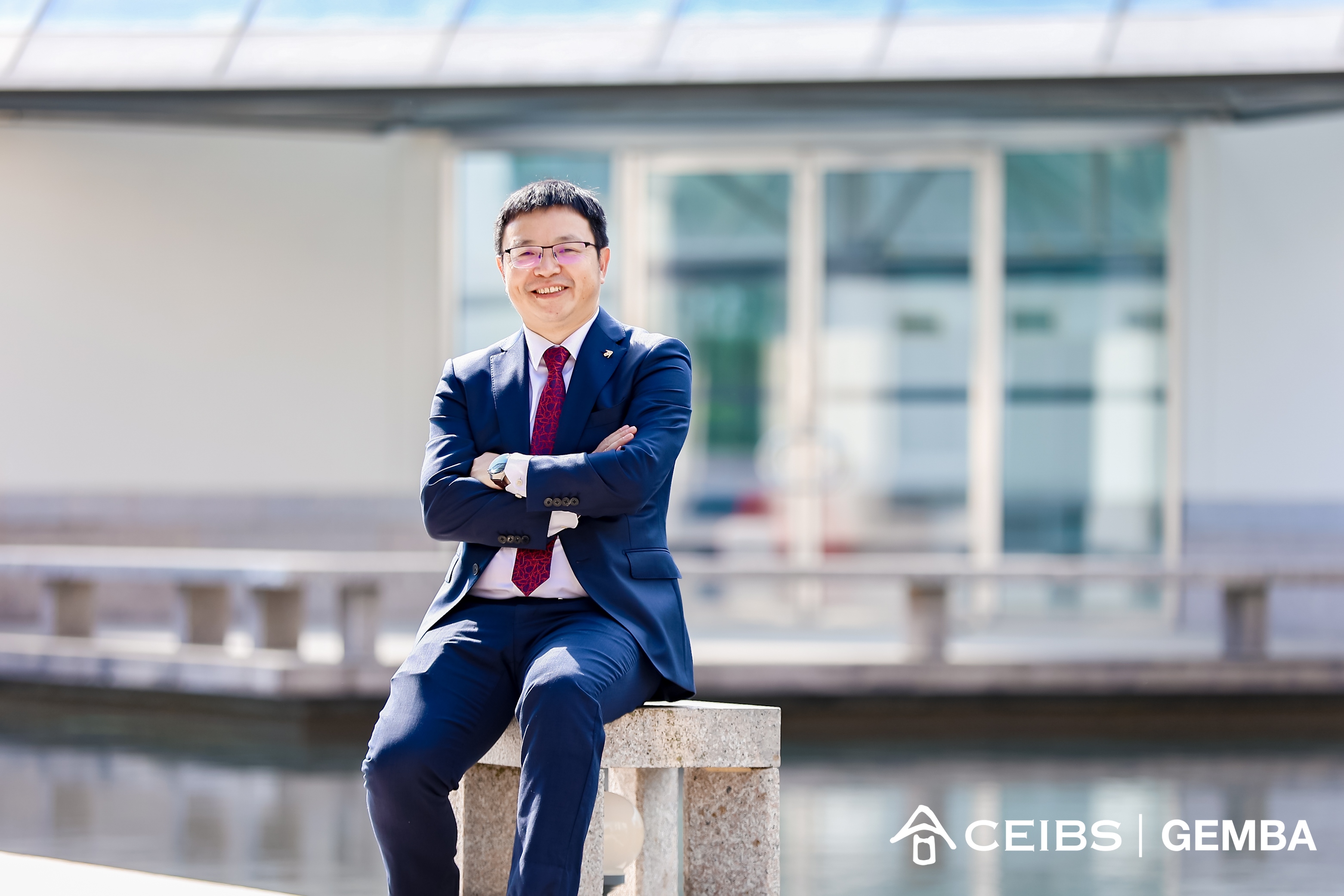
As China’s domestic market slows and access to capital tightens, many Chinese companies that once focused on building a foothold at home are now looking abroad for new growth drivers. However, unlike those who pursue domestic development before expanding overseas, ACROBiosystems set its sights on international markets from day one, particularly the North American market. ACROBiosystems is a biotechnology company aimed at being a cornerstone of the global biopharmaceutical and healthcare industries by providing essential biological reagents and solutions. In just over a decade, from founding to IPO, the company has built a global presence with offices in 13 regions. Today, overseas revenue accounts for 70% of its total revenue.
Why did ACROBiosystems pursue a global-first strategy from the outset? What has driven its international success? And what lessons can it offer to other Chinese companies eyeing overseas expansion? In this article, CEIBS alumnus Mike Chen Yiding (Global EMBA 2021) – founder, chairman, and CEO of ACROBiosystems – reflects on his journey from ground zero to global reach, sharing insights for fellow pioneers looking to take Chinese innovation to the world.
Upstream Players Must Think Globally
Mike often recalls a moment from ACROBiosystems’ early days: “In those days, we were doing business in the U.S. without a local team. When American clients called, the line would be forwarded to my mobile in China. My English wasn’t very fluent at the time. Sometimes they’d ask to speak to someone with better English, and I had to say, ‘I’m afraid it’s just me. You’re already talking to the best we’ve got.’”
Over a decade later, with a new wave of Chinese companies eyeing overseas expansion, Mike reflects on how he built his company and brought it onto the world stage.
In 1999, Mike was admitted to the biotechnology programme at Shaanxi University of Science and Technology with excellent grades. That was his first time leaving the remote mountain village where he grew up. After graduating in 2003, he moved to Beijing to join Sinocelltech, where he became one of the few professionals in China working on large-scale cell culture process development. He later held roles at Life Technologies and Thermo Fisher Scientific. These early experiences gave him both deep technical expertise and a solid grasp of the industry, laying the groundwork for his entrepreneurial journey.
For the biopharmaceutical industry, 2010 was a watershed year. The U.S. economy was still reeling from the 2008 financial crisis, and its aftershocks rippled across global markets, hitting major pharmaceutical companies particularly hard. With budgets under intense pressure, R&D in small-molecule drug development ground to a halt. Between 2010 and 2012, many pharma giants were forced to downsize, with research teams bearing the brunt of the cuts.
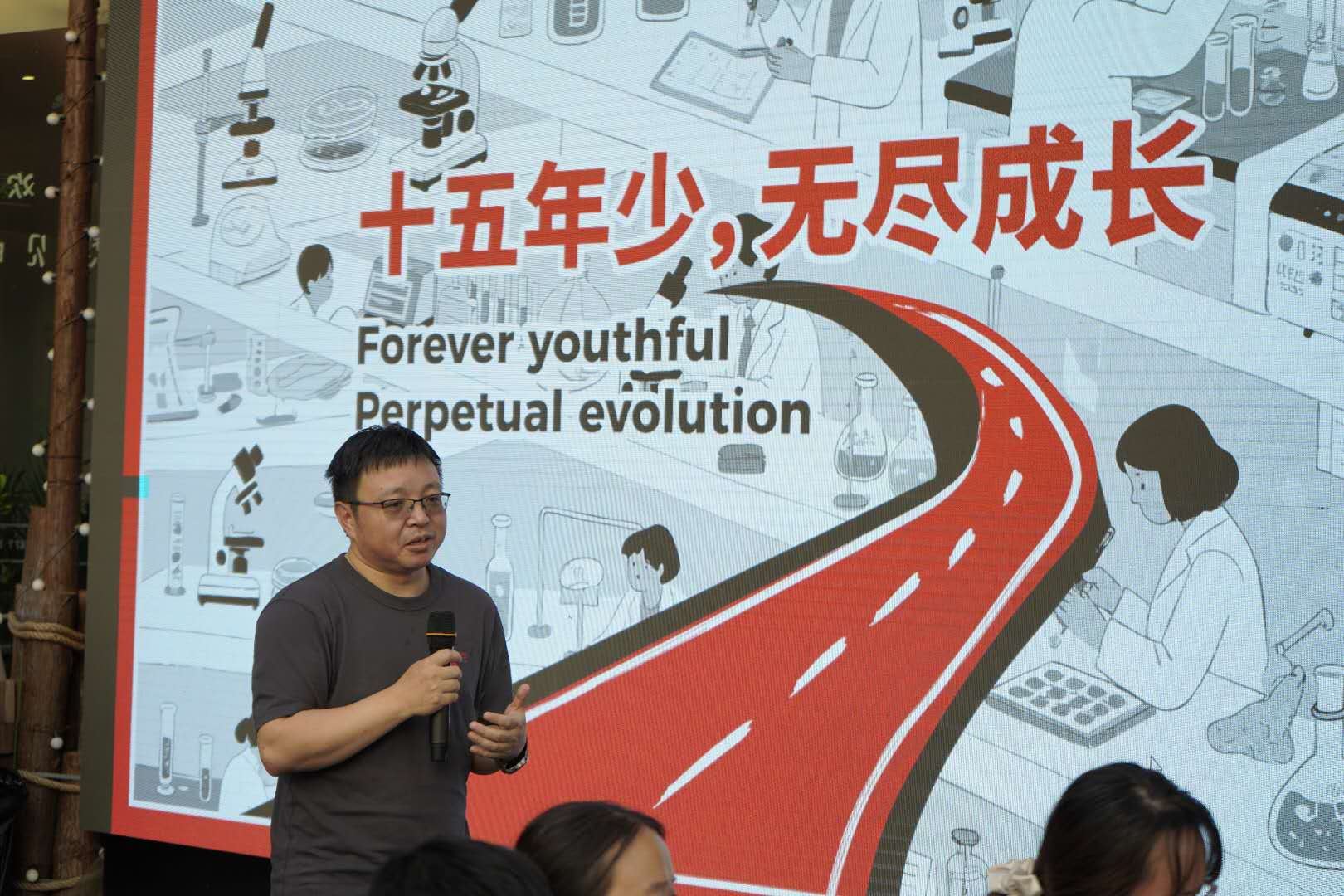
Yet 2010 also marked a turning point in cancer immunotherapy. Until then, the field had received little attention from the broader industry. That changed when Bristol Myers Squibb (BMS) announced promising clinical trial results for its PD-1 antibody therapy, generating a wave of excitement. In the aftermath, several companies, including Merck, ramped up investment in immunotherapy research, setting the stage for a new era of breakthroughs.
Sensing this shift in momentum, and encouraged by friends, Mike decided to leave his well-paid position at Thermo Fisher Scientific. Drawing on the technical expertise and industry insights he gained from the three previous roles, he teamed up with two partners to start a small company: ACROBiosystems Consulting Co., Ltd. The startup had humble resources – a registered capital of only RMB 30,000, a modest 20-square-metre office, and little more than a few second-hand laboratory instruments. But this shabby beginning marked the birth of today’s publicly listed ACROBiosystems.
As immunotherapy research gathered pace, demand for high-quality reagents surged, catching much of the industry off guard. Most suppliers, large and small, were unprepared to meet the needs of this rapidly expanding market. For a small and agile newcomer like ACROBiosystems, however, the sudden boom helped level the playing field. Globally, leading upstream biotech suppliers in this segment were already generating over half of their revenue from North America. Europe and the Asia-Pacific region (excluding China) contributed between 30% and 40%, while China’s revenue share varied widely, from 10% to 15%, depending on the company.
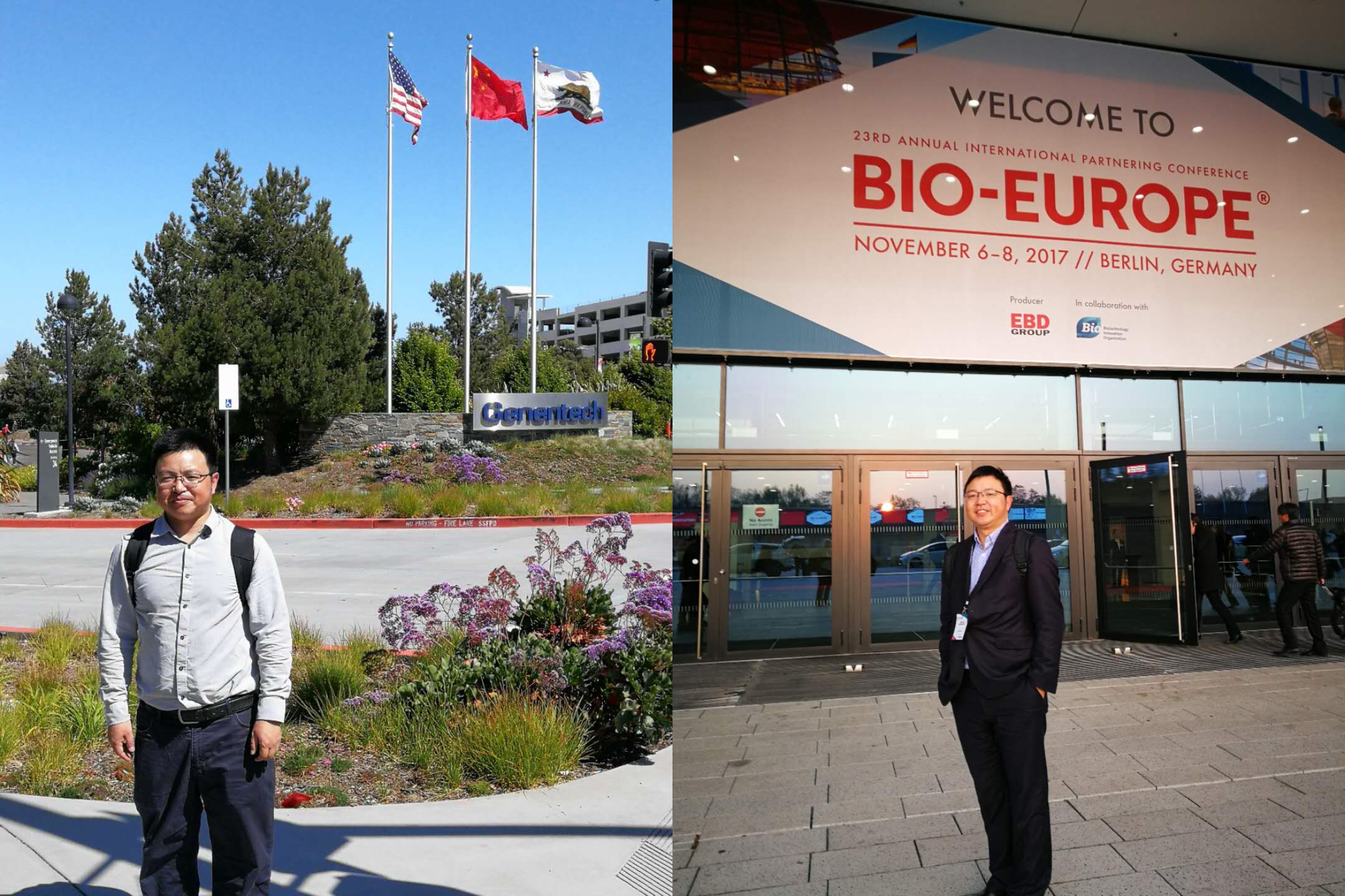
ACROBiosystems positioned itself as an upstream player in this evolving landscape. It supplies essential reagents and services, primarily recombinant proteins, to support the research, development, and manufacturing of biologics. From the outset, Mike believed that upstream biotech companies should compete on a global stage. Just one year after its founding, ACROBiosystems set up its first subsidiary in the U.S.
In its early years, ACROBiosystems grappled with limited funding and a lean team. The biotech sector is known for its heavy R&D investment and long payback cycles – factors that made investors cautious at the time. To stay afloat, the founding team tapped into multiple funding sources. Then, in April 2011, the company landed its first order – a critical milestone that validated their direction. Over the years, ACROBiosystems steadily expanded its global footprint. In 2018, it opened an innovation lab in the U.S., followed by a new subsidiary in Switzerland in 2022. Today, international markets account for around 70% of the company’s revenue.
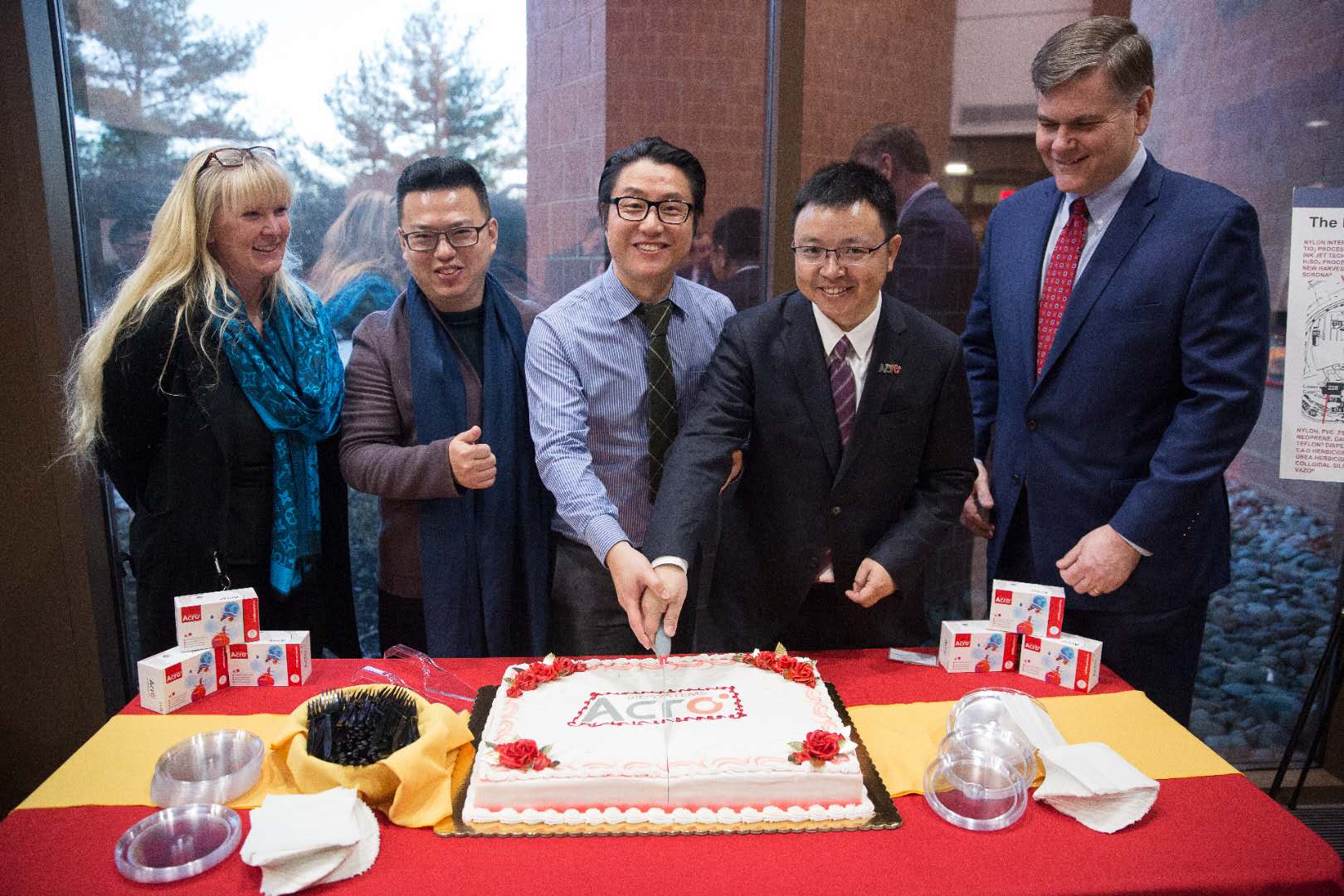
Quality Always Comes First
In its early days, ACROBiosystems focused on contract research services, using its technical strengths to generate stable cash flow. As project volumes grew, so did the size of the team and the company’s revenue. But the contract research model had its limits. It was heavily constrained by funding and staffing.
To move beyond those boundaries, ACROBiosystems began developing its own products while continuing to provide R&D services. Over time, it built a growing product catalogue and started gaining brand recognition in the North American market.
For Mike, global expansion begins with clear product and brand positioning. ACROBiosystems serves pharmaceutical companies, where strict regulatory requirements and long drug development cycles make quality absolutely critical. That’s why, from day one, the company has prioritised one core principle: a relentless focus on delivering high-quality products.
From the outset, Mike positioned ACROBiosystems as a global company. Wherever it operated, the company steered clear of emphasising its local identity, choosing instead to project an international image.
“In the early days, many clients didn’t even know where we were from. But once they saw the quality of our products and services, it simply didn’t matter.”
Mike emphasises that branding and overseas expansion certainly matter. They can affect how quickly success comes. But in the end, it’s the product that makes or breaks a business. If the quality isn’t there or the market positioning is off, no amount of branding or marketing can compensate for it.
Another core priority is identifying the right customer segment. From the beginning, ACROBiosystems focused on a clearly defined group: scientists working on early-stage drug discovery and development in the lab. Mike explains, “We stay on top of the latest scientific advances and pharmaceutical trends. Whenever a new target or drug modality emerges, we aim to respond immediately.” He points out that many scientists are not fully aware of all the suppliers in the market – they typically rely on Google to search for the products they need. That’s why digital marketing plays such a critical role. By investing in SEO and using platforms like Google to enhance online visibility, the company ensures that its products are easily discoverable by its core audience.
A robust supply chain has been critical to ACROBiosystems’ international success. In its early years, the company operated a large laboratory in the U.S., which enabled it to respond quickly to technical enquiries from customers. Today, it has four global warehousing centres, with 97% of orders delivered within three days. According to Mike, many major pharmaceutical companies, such as Novartis and Johnson & Johnson, initially discovered ACROBiosystems through Google and began by trying its products. If the initial experience is positive, word tends to spread internally.
“For instance, if a team in North America starts using our products and is satisfied, their colleagues in Switzerland might adopt them next. As customers advance into later stages of drug development, they begin looking beyond technical specs. A supplier’s overall reliability then becomes critical. At that point, they also assess a supplier’s quality management systems, logistics infrastructure, and technical support.”
Strong technical support and sophisticated service are essential to building lasting customer relationships. When working with a new product, even experienced scientists can encounter application challenges or feel uncertain about where to start. To help customers succeed, ACROBiosystems conducts extensive experimental validation before launching any product and provides detailed data sheets and usage protocols to guide proper application. Over time, this ongoing interaction, supported by clear and responsive communication, helps foster trust and long-term partnerships.
“We focus on products that are in high demand but underserved in the market, and put serious effort into perfecting those with real potential,” says Mike. ACROBiosystems prioritises the development of widely applicable products with broad market relevance – solutions that most companies need but few suppliers do well. This approach accelerates customer acquisition and boosts conversion rates by offering product samples to encourage trial and adoption.
Clarifying the Purpose of Going Global
In 2015, China kicked off a major reform of its drug review and approval system. Supported by policy tailwinds and a buoyant capital market, the country’s biotech industry entered a phase of rapid, innovation-driven growth, marking a key inflection point for the sector. Against this backdrop, having already gained a foothold and built brand recognition in the U.S., ACROBiosystems began shifting its focus back to the domestic market.
By 2021, after eleven years of relentless effort, Mike led ACROBiosystems to a successful IPO on the ChiNext board of the Shenzhen Stock Exchange. With the company now publicly listed and its position in China and the U.S. more firmly established, Mike turned his sights to Europe. Although the company already had a presence there, it lacked a dedicated local team. This gap led Mike to reflect on how best to prepare for the next phase of global expansion.
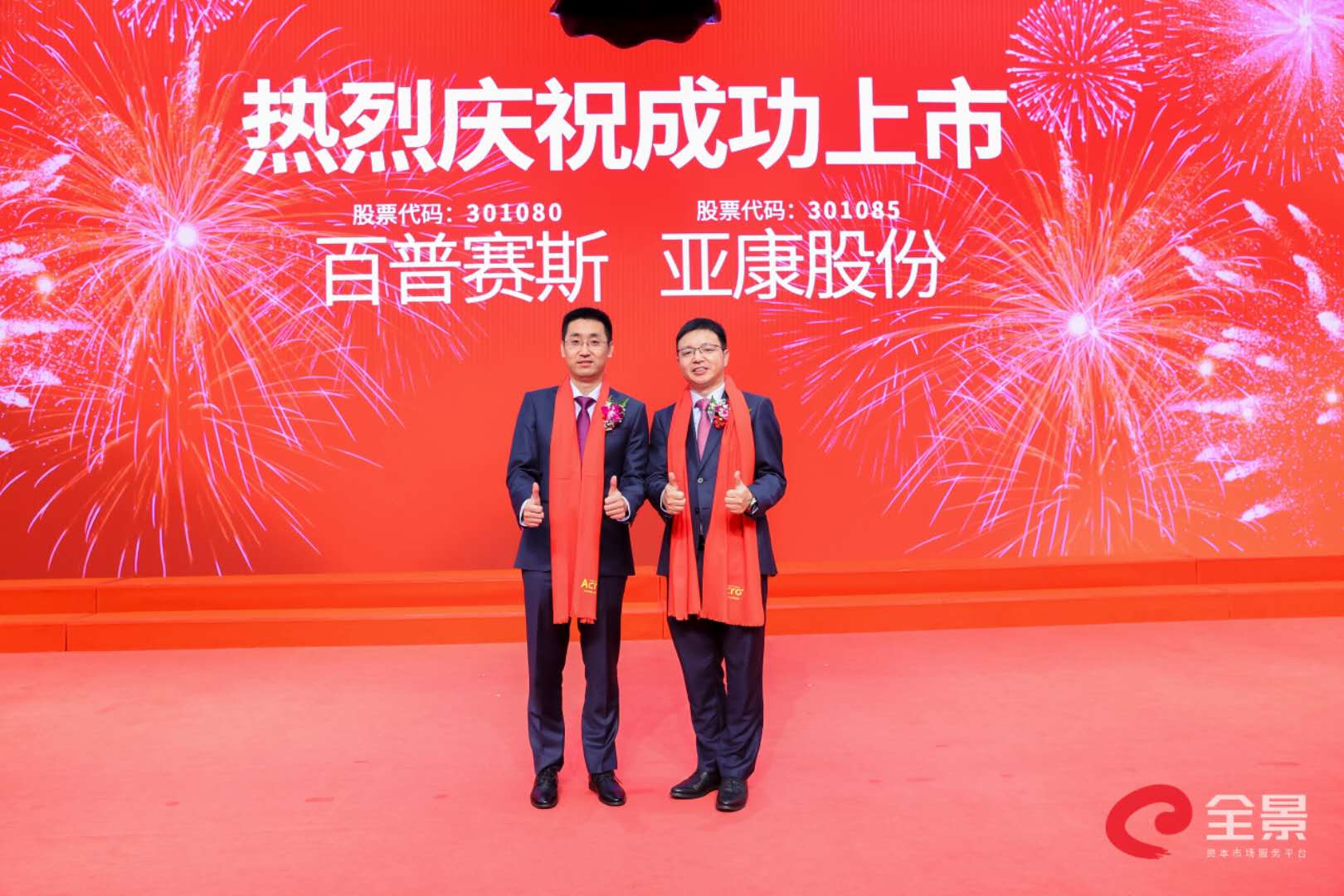
“What mattered most to me was finding a programme with strong European ties – and in China, CEIBS was clearly the top choice,” Mike recalls. At the time, he was hoping to take stock of more than a decade of hands-on experience and sharpen his grasp of business and management.
For Mike, joining CEIBS wasn’t just about sharpening his business skills – it was about gaining clarity. The programme gave him the language and frameworks to make sense of decisions he had once made on instinct. “It helps me step back and see the logic behind choices I’ve made in the past – some right, some wrong – and think more systematically about how to do better,” he says. The experience also opened new doors. Through conversations with classmates and professors, Mike broadened his perspective and built lasting connections. “The biggest gain is joining a network of tens of thousands of CEIBS alumni. I’ve met so many driven, curious people who are still pushing themselves forward. It makes me feel more connected to the world.”
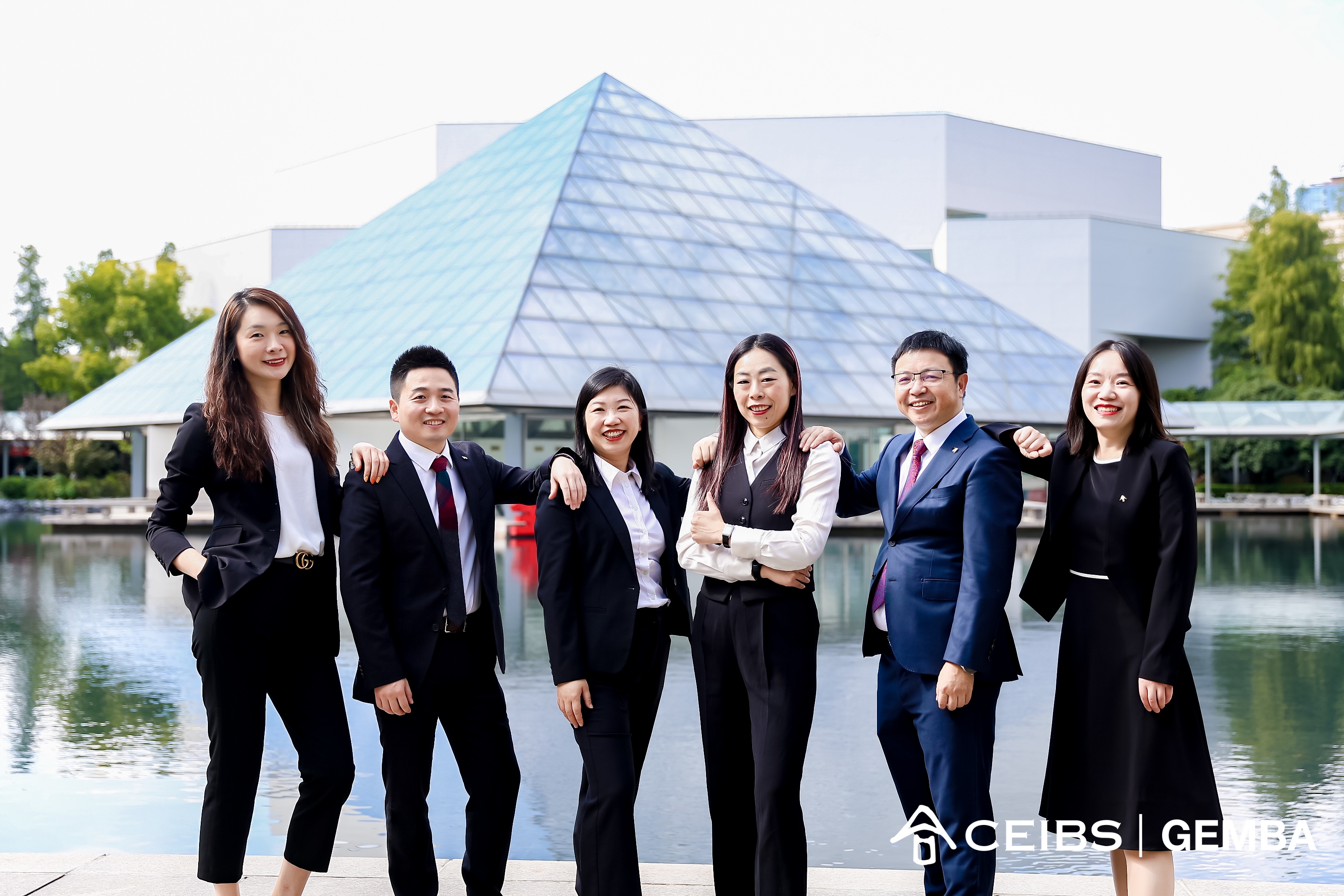
Mike believed the GEMBA programme offered a firsthand view into different cultures and perspectives – a vital asset for any business with global ambitions. Interacting with classmates from across countries and regions gave him a deeper understanding of cultural differences. “In class and outside of it, I had the chance to observe how people from different backgrounds approach problems and express ideas,” he recalls. What stood out to him most wasn’t the difference, but the common ground: while approaches may vary across cultures, the underlying logic of business decision-making was often surprisingly consistent.
His favourite courses were Strategic Management, Leadership, and ESG (Environmental, Social and Governance), all of which had a tangible impact on his company’s business development and team management.
“I shared what I learned with my team and translated it into practices that worked for us. After all, business success ultimately depends on team success, and leadership development is one of the keys to building a strong team.”
Mike notes that after decades of reform and opening-up – particularly following China’s entry into the WTO – domestic companies have significantly improved in both product quality and technological capability, giving them the confidence to compete globally. At the same time, with intensifying domestic competition and limited growth potential at home, expanding into international markets has become a strategic imperative.
In Mike’s view, expanding overseas is far more complex than starting a business from the ground up. It’s not just about breaking into new sales markets; it also means building global operations and establishing robust governance. His advice to companies looking abroad? Start by getting crystal clear on which markets you’re targeting. The U.S., Europe, South America, and Southeast Asia each have distinct dynamics, so in-depth research into local demand is essential. Ultimately, business is about creating value. Companies must understand what their target markets need and where potential outside investment may come from. This is especially critical for pharmaceutical and medical device firms, which must navigate local regulations, including clinical trial requirements. “If your resources are limited, finding the right local partners is a smart move,” he says.
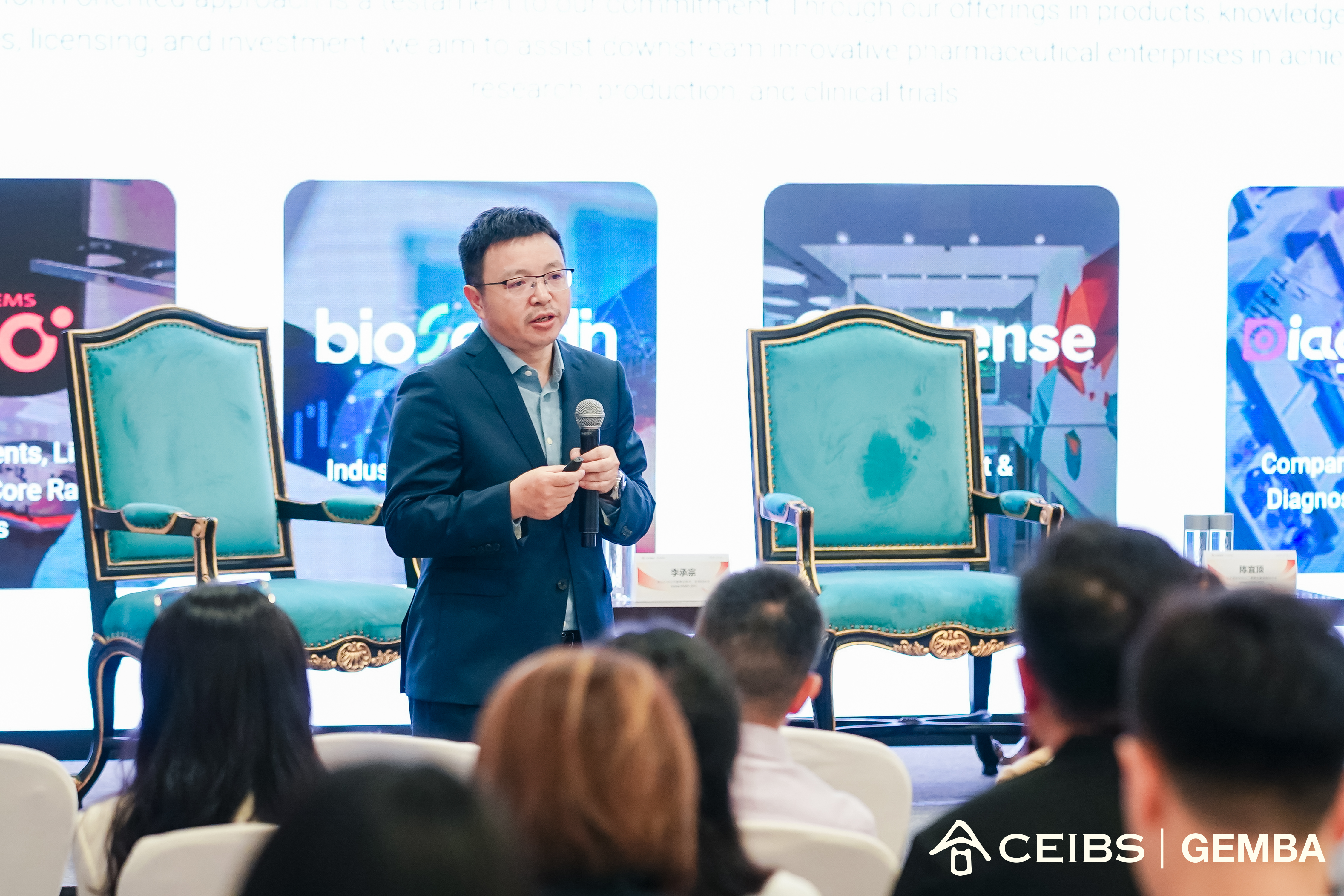
When it comes to going global, Mike says the first step is simple: know exactly where you’re headed. From there, he suggests thinking through three key questions. First, do you truly understand your customers and the market? That means knowing their pain points, how they behave, and what the competitive landscape looks like. Second, do you know how to reach those customers? You’ll need to find the right channels to communicate your product’s value. And third, can you deliver? That’s not just about logistics; it also means understanding local customs rules and regulatory requirements that could affect fulfilment.
When entering a new market, companies need to decide whether to operate independently or partner with local players. That choice largely depends on local conditions and the market’s openness to new entrants. In the U.S., for instance, the market is relatively open, so direct operations are often more effective than working through agents or distributors. In Southeast Asia, companies must consider both product positioning and the competitive landscape. In South Korea, a phased approach tends to work best: start small, learn the market, and then determine the optimal level of investment or type of partnership.
“At the end of the day, it all comes back to one core question: why are you going global? If the goal is to gain market share and grow sales, smaller companies often have an easier time getting a foothold. They tend to fly under the radar and trigger less resistance. The real question is whether your business can offer something genuinely valuable to the local market.”










